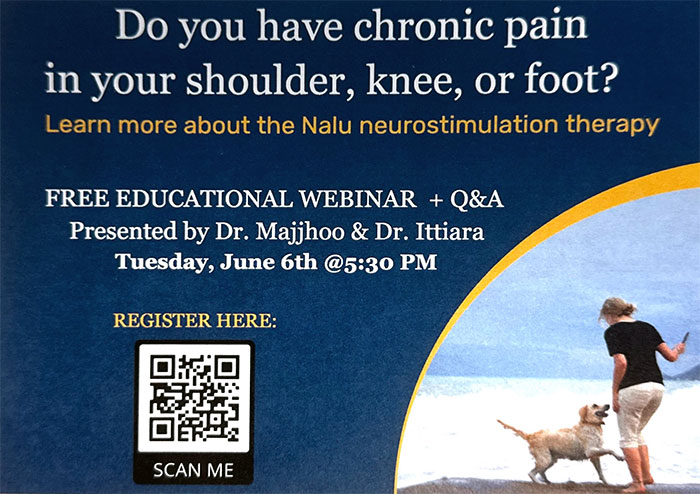FAQs About Headache Pain and Treatment

What is a headache?
A headache is any pain or discomfort occurring in the head, scalp, eyes or radiating into the neck. While serious headaches are uncommon, they can occur and should be treated 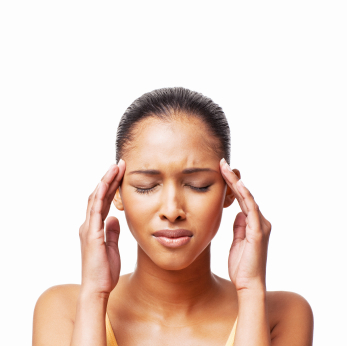 with extreme caution. For most, headache pain can be relieved through modifications to lifestyle, implementation of relaxation methods, injections or medications. Unfortunately, there is no true cure for headaches.
with extreme caution. For most, headache pain can be relieved through modifications to lifestyle, implementation of relaxation methods, injections or medications. Unfortunately, there is no true cure for headaches.
What are the types and causes of headache pain?
Tension headaches
The most common form of headache pain is tension headaches. This type of head pain is caused by tightness in the muscles, particularly in the neck, shoulder blades, scalp, upper back and jaw. Tension headaches may be related to stress, poor posturing, anxiety or depression.
Tension headaches often originate in the back of the head and spread forward. These types of headaches come and go, but tend to be along both sides of the head. According to published research, nearly 50 million Americans suffer from headache pain, with 50% of women experiencing tension headaches and 20% of women diagnosed with migraine pain (Digre et al., Cecil Medicine, 2011).
Treatment for tension headaches does not come in a ‘one size fits all’ approach.

Prozac may help with tension headaches
Fortunately, multiple options are available. Treatment during the headache may consist of:
- Caffeine, NSAID’s, Tylenol
- Combination medications such as Excedrin (contains caffeine, aspirin, and acetaminophen)
- Triptans and Opiates
Preventative medications for tension headaches may include:
- Tricyclic Antidepressants (e.g. amytriptaline)
- Muscle Relaxers (e.g. tizanadine)
- SSRI’s (e.g. Prozac or Paxil)
- Anticonvulsants (e.g. Neurontin)
Cluster headaches
 Cluster headaches are described as sharp and extremely painful head pain that can occur several times a day for months at a time. Cluster headaches may disappear for weeks and then abruptly come back and affect the patient for months. Cluster headaches are sometimes referred to as ‘repeated’ headaches.
Cluster headaches are described as sharp and extremely painful head pain that can occur several times a day for months at a time. Cluster headaches may disappear for weeks and then abruptly come back and affect the patient for months. Cluster headaches are sometimes referred to as ‘repeated’ headaches.
Research scientists do not understand the exact cause of cluster headaches, but believe that their occurrence may be related to the body’s release of hormones, such as serotonin. The hypothalamus may also be involved. Research is ongoing on the triggers of cluster headaches.
Cluster headache treatment is broken down into abortive and preventive. For abortive treatment, individuals may use oxygen therapy, triptan medication or nasal lidocaine. The triptan medication should be administered subcutaneously for more rapid benefit.
Preventive treatments include verapamil as first line treatment with alternative medications including methysergide, lithium or the anti-convulsant Topiramate. Magnesium or Vitamin D supplementation may be of benefit as well.
Migraine headaches
Migraines are severe and may include combined symptoms of blurred vision, nausea, 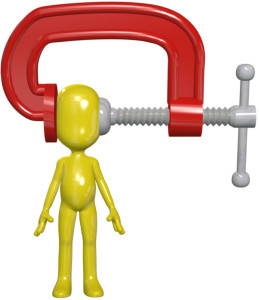 vomiting and photophobia (light avoidance). The pain is generally throbbing in nature and tends to favor one side of the head, although both sides may be affected.
vomiting and photophobia (light avoidance). The pain is generally throbbing in nature and tends to favor one side of the head, although both sides may be affected.
Migraine pain typically gets worse when a person moves around; therefore resting is critical to relieving symptoms. Almost 30 million Americans are afflicted with migraine problems according to the National Headache Foundation, and women suffer three times more than men.
There are a variety of treatments available for migraines that include:
- NSAID’s
- Narcotics
- Ergots
- Butalbital
- Anti-depressant Medication
- Triptans
- Beta Blocker Medication
- Supratrochlear Nerve Blocks
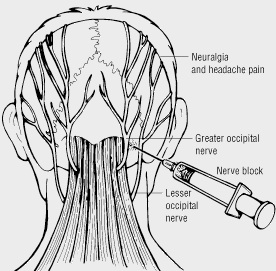
Occipital Nerve Block
- Anti-nausea medication
- Acupuncture
- Anti-seizure medications
- Botox Injections
- Occipital Nerve Blocks
- Occipital Radiofrequency Ablation
- Supraorbital Nerve Blocks
- Sphenopalatine Nerve Blocks
- Chiropractic Therapy
Other types of headaches
Sinus headaches and migraines are among the most common types of headaches, aside from cluster and tension headaches. Both can be extremely debilitating and impact daily life. Sinus headaches usually cause pain in the face and front portion of the head and are due to the sinus passages becoming swollen due to a cold, infection or other reasons.
When to see a doctor for headache pain?
Headaches, especially those that are recurrent and chronic, may indicate something more serious is going on in the body. If you experience any of the following, you should see your 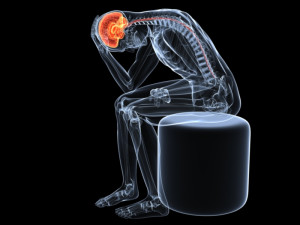 doctor right away to get medical care:
doctor right away to get medical care:
- The headache is explosive in nature and is accompanied by vomiting, nausea or a fever.
- The headache interferes with daily activities and does not go away even after resting.
- The headache worsens over a 24 hour time period.
- The headache is brought on following a head injury, such as a blow to the head.
- You have a disease, such as cancer, that is accompanied by chronic head pain.
- The head pain is severe causing redness in one eye or pain behind one eye.
- The head pain is accompanied with slurred speech, blurred vision, confusion, memory loss or a combination of all.
Are there diagnostic tests for headaches?
While your doctor will gain a solid understanding of your headache pain from your medical history, diagnostic tests may be performed to rule out any serious conditions. Diagnostic tests are beneficial for identifying infections and diseases, should they exist.
Some of the most common diagnostic testing done for headache pain includes:
- Head CT scan
- Head MRI
- Blood tests
- Lumbar puncture to rule out infection
- X-rays of the sinus cavity
What to expect at the doctor’s office?
When you visit your medical provider or pain clinic for headache related symptoms it is important to reveal a complete medical history. If you have kept track of the pain sequences and any triggers that you believe have contributed to the pain be sure to offer the information to your doctor. 
After a complete medical history is gathered, a medical examination will be conducted. The medical exam may cover such areas of the body as the head, eyes, nose, throat, ears, neck and overall nervous system.
If you have not kept a pain diary or log, your doctor may recommend that you begin collecting information about the head pain. A clear symptoms history over a period of time will help your provider pinpoint the problem. Your doctor may provide you with a list of questions to answer during this time so that a better understanding of the headache pain is provided.
Diagnostic tests may be ordered at this time to rule out infection and/or diseases. Blood tests and sinus x-rays are among the most common forms of diagnosing headache pain. If you have been experiencing headaches for prolonged periods of time, your NIPM pain doctor may order an MRI or CT scan of the head and neck region.
Outcomes
Most patients with chronic headache pain can experience satisfactory treatment at NIPM pain clinic. This may include receiving treatment for preventive options, abortive treatment or something to help the headache subside while it’s occurring. Each person’s headaches are different and will require individualized treatment for success.
If you are suffering from chronic headaches, help is available through the Nevada Pain Network. The Network connects individuals in pain with pain management NIPM trusts. Simply fill out the form or call (734) 682-3309 for assistance today!


